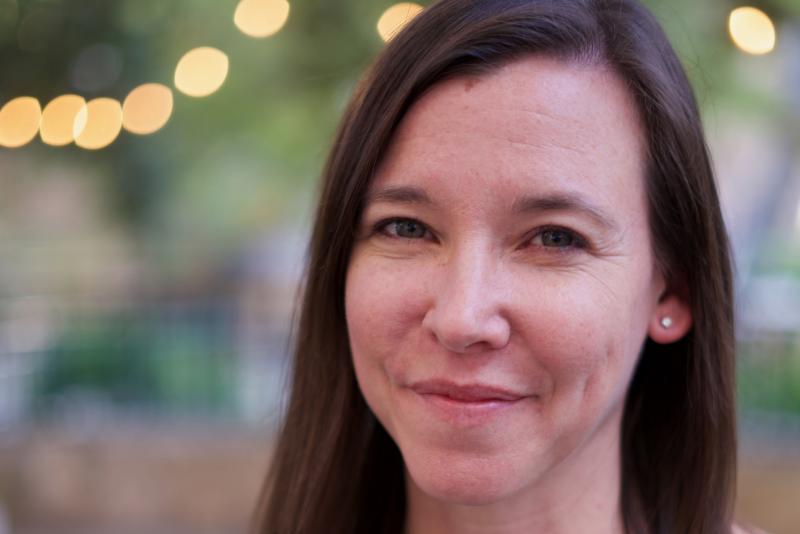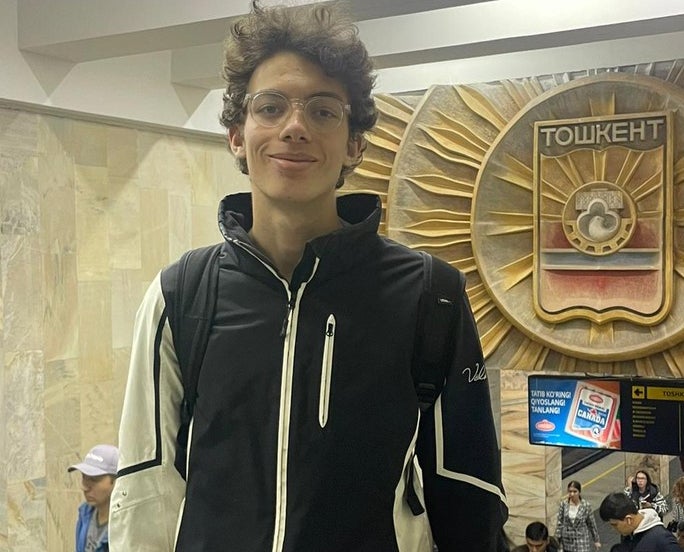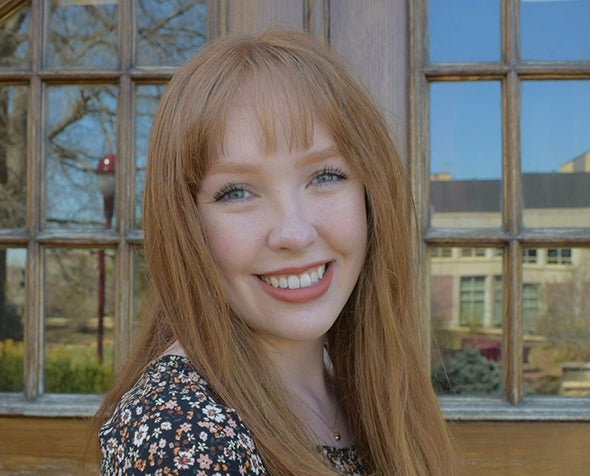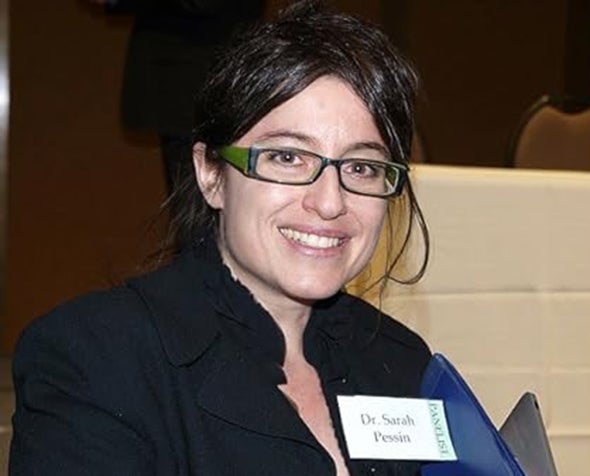Younger People Leaning into Spirituality, Leaving Organized Religions

The religious climate in the United States has been shifting for decades. The latest Pew research found 28% of Americans surveyed consider themselves unaffiliated with any religion, including a growing percentage of younger people identifying with no religion. Meanwhile, 7 in 10 U.S. adults describe themselves as spiritual versus religious. At the same time, religious diversity has increased in the U.S. while some organized religions have grown increasingly polarized over involvement in social/political issues including abortion, women’s rights, LGBTQ+ and trans rights.
The CAHSS Newsroom asked Christy Cobb, who was recently promoted to associate professor of Christianity in the College of Arts, Humanities & Social Sciences (CAHSS) Religious Studies Department, for her take on the changing role of religion and spirituality in the U.S. and its social, cultural and political implications.
Why has affiliation with organized religions among Americans decreased over the years?
The Pew research shows that younger people especially feel less connected to religious institutions. One reason is that church systems — especially within Christianity — are out of sync with what our young people are thinking about in terms of social change. The students that I teach feel very disconnected from the Christian denominations they grew up with that they don't feel represent them or their beliefs.
What are the most recent social and political factors that are contributing to younger people, especially feeling alienated from the views of the churches they grew up in?
I think that many of our religious denominations within Christianity are becoming more exclusive while young people are becoming more inclusive. This is of course not true for all denominations, but we have seen evidence of this in the Southern Baptist Church (SBC), for example, that has limited roles that women can play within the church. We’ve also seen churches limiting inclusion of the LGBTQ+ community in specific ways and that, too, has contributed to this feeling of alienation among young people.
When religious denominations take stances on specific issues such as abortion, women’s rights, and LGBTQ+ rights and align themselves with specific political figures people also can feel alienated.
I also think that young people are turning to friendship circles and groups centered on non-religious interests and activities such as hiking or rock climbing while also seeking spiritual advice and talking more about spiritual questions within their relationships and interest groups.
Since fewer people are participating in religious institutions, what replaces the sense of community, spiritual support and charitable services organized religions traditionally provided?
Young people are finding community in other ways. Social media, apps, online podcasts, youtubers and TikTok personalities provide spiritual support and people look to some popular authors for spiritual guidance. But I also think that young people are turning to friendship circles and groups centered on non-religious interests and activities such as hiking or rock climbing while also seeking spiritual advice and talking more about spiritual questions within their relationships and interest groups.
So, people can find community in-person and online in groups organized around something in common, but those groups aren't often charitably focused. I think that’s something we should be concerned about. NGOs (non-governmental organizations) may play a role in reaching out to groups of people who may not be receiving the charitable help they need from religious institutions.
What role, if any, do you see higher-education institutions like DU playing in these trends?
In our religious studies courses we encourage students to think for themselves and to think and read critically to form their own beliefs and evaluate the words that they hear coming whether from a pastoral authority or from the Bible. I think higher education plays a role in encouraging younger people to analyze what they hear from these denominations and then decide whether it aligns with what they believe God represents or what the scriptures are saying.
Religious studies classes and faculty are not telling students what to believe or think but we are encouraging them to think for themselves and that might lead to them saying I don’t agree with what I hear or am reading about what the Bible says.
Do the classes you teach consider what different religions might have in common; what values they might aspire to such as kindness to others or the need for forgiveness?
Yes. I taught a class in March interterm called ‘Comparative Religion’ where I travelled with DU undergraduate students to Chicago. We visited several different sites from different religions in the Chicago area and that’s exactly what my students were able to see — the values that might align throughout different religious contexts.
We ended the course by visiting a place called Interfaith America — a center for interreligious dialogue in the United States. That was an especially meaningful visit and a place where students could think about what connects us, what brings us together and consider threads that can be found throughout different religions.
In our religious studies department, we have experts that represent each of the major world religions so students who take our classes don’t just study Christianity, they also study Buddhism, Hinduism, Judaism and Islam. It gives them a broader context and expands their understanding.
How has the proliferation of social media impacted these trends in terms of where people turn for information and support and does AI play any role?
I think social media especially has greatly impacted these trends. For example, you can go to TikTok and interact with people of various religions and if you want to find more exclusive views of the Bible, you can go down that path. There also are scholars, practitioners and pastors presenting more inclusive readings of the Bible and different theological views. There are a number of apps that support a person's spiritual development, and that, too, has been an interesting way in which people can explore their own spirituality.
In terms of AI, we know that it’s not always correct in the information that it pieces together. So, I tell students to routinely check sources. On the more positive side, AI has also given us ways for students to ask the questions they might be uncomfortable asking elsewhere. For example, there is an app that uses AI to enable users to ‘text’ Biblical characters and ask questions. You can “text” Jesus using the AI app: Text Jesus and ask what he might think about a certain issue or question and receive an AI-generated response. I've tried it with students, and we all had fun although they were mostly critical of the answers in the chat. Also, they noted the lack of women to "text" with on the app (the course was focused on gender). But things like that are intriguing ways to encourage people to explore religion and theological ideas.
It’s interesting that research is showing a waning identification with organized religion but more people describing themselves as spiritual. Can you explain that?
My view is that someone who describes themselves as spiritual is experiencing their connection to a higher power on an individual basis whereas someone who identifies as religious is participating in a communal activity such as a ritual, liturgy or congregation. People who are religious and spiritual might believe similarly, but the way they participate differs. Someone who is spiritual might not want to join a church or congregation and might prefer to meet their spiritual needs at home through prayer, devotion and practice.
Even in the more charismatic, evangelical denominations, when people leave that group for whatever reason but still retain their belief, they might describe themselves as spiritual, rather than religious.
I fear that if influencers in our nation's religious organizations aren't aware of just how polarizing it is to align with political figures or movements, they're going to become even more alienating to younger people.
Long-term, where do you see these trends going in terms of social, cultural and political implications?
I think that younger people are going to continue to feel alienated by religious institutions. I hope we will see more shifts like the one within the United Methodist Church toward a more open and inclusive approach to the LGBTQ+ community that may attract more young people. But I don't see institutions like the Southern Baptist Church becoming more inclusive — it seems they are very determined to hold to these recent changes that are not aligned with the longer history of the SBC. In previous generations women were able to participate in SBC churches and to pastor churches. So, I wonder how that is going to affect future choices within the younger generation.
As far as the social, cultural, and political implications, I fear that if influencers in our nation's religious organizations aren't aware of just how polarizing it is to align with political figures or movements, they're going to become even more alienating to younger people.
We've seen an increase in religious diversity in the U.S. over the past few decades. Where do younger people stand on religious tolerance?
I find that younger people in general are much more open to talking about religious differences and much more tolerant of religious differences than older people. At least the students in my classes tend to be extremely interested, curious and more tolerant today even than the students I was teaching 10 years ago. I think as we have more people entering the U.S. with different religious views and ideologies, more young people will be interested in asking questions and trying to grow and learn about other religious traditions through that dialogue.





